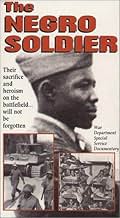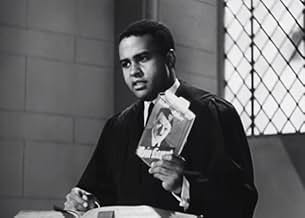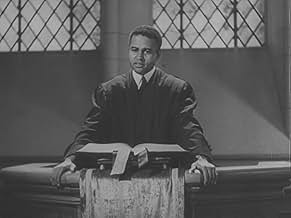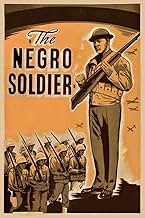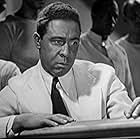Documentary focusing on the contributions to the American war effort of African-American soldiers.Documentary focusing on the contributions to the American war effort of African-American soldiers.Documentary focusing on the contributions to the American war effort of African-American soldiers.
- Awards
- 1 win
Clyde Turner
- Soloist in Church
- (as Sgt. Clyde Turner)
Bertha Woolford
- Mrs. Bronson
- (as Bertha Wolford)
Norman Ford
- Lt. Robert E. Bronson
- (as Lt. Norman Ford)
Gertrude Elise Ayer
- Self - Principal
- (archive footage)
Richmond Barthé
- Self - Sculptor
- (archive footage)
- (as Richard Barthe)
Erich Borchmeyer
- Self
- (archive footage)
Dean Dixon
- Self - Conductor
- (archive footage)
W.C. Handy
- Self
- (archive footage)
Matthew Henson
- Self - Polar Explorer
- (archive footage)
Adolf Hitler
- Self
- (archive footage)
Cornelius Johnson
- Self
- (archive footage)
Henry Johnson
- Self - WW1 Soldier
- (archive footage)
Ralph Metcalfe
- Self
- (archive footage)
Lawrence Reddick
- Self - Museum Curator
- (archive footage)
- Director
- Writer
- All cast & crew
- Production, box office & more at IMDbPro
Storyline
Did you know
- TriviaIn 2011, the film was selected for preservation in the National Film Registry by the Library of Congress with the following statement: "'The Negro Soldier' showcased the contributions of blacks to American society and their heroism in the nation's wars, portraying them in a dignified, realistic, and far less stereotypical manner than they had been depicted in previous Hollywood films."
- Alternate versionsAccording to government documents, a two-reel shortened version of the film was released in July 1944.
- ConnectionsEdited from America (1924)
Featured review
Documentary focusing on the contributions to the American war effort of African-American soldiers.
The film was produced by Frank Capra as a follow up to his successful film series "Why We Fight". The army used this film as propaganda to convince Black Americans to enlist in the army and fight in the war. Most people regarded the film very highly, some going as far as to say that "The Negro Soldier" was "one of the finest things that ever happened to America".
In different movies during this time period, African Americans were often portrayed as humorous characters. However, after "The Negro Soldier", African Americans played more respectable and prominent roles in films. I don't know if this film is directly connected to the new way these men were shown in film. I can acknowledge there was definitely a post-war shift. And it might be as simple as saying that white men and black men fought together, making them more unified in the 1940s... but that would disregard the role that minorities had in earlier wars.
The film was produced by Frank Capra as a follow up to his successful film series "Why We Fight". The army used this film as propaganda to convince Black Americans to enlist in the army and fight in the war. Most people regarded the film very highly, some going as far as to say that "The Negro Soldier" was "one of the finest things that ever happened to America".
In different movies during this time period, African Americans were often portrayed as humorous characters. However, after "The Negro Soldier", African Americans played more respectable and prominent roles in films. I don't know if this film is directly connected to the new way these men were shown in film. I can acknowledge there was definitely a post-war shift. And it might be as simple as saying that white men and black men fought together, making them more unified in the 1940s... but that would disregard the role that minorities had in earlier wars.
Details
Box office
- Budget
- $78,254 (estimated)
- Runtime43 minutes
- Color
- Sound mix
- Aspect ratio
- 1.37 : 1
Contribute to this page
Suggest an edit or add missing content


